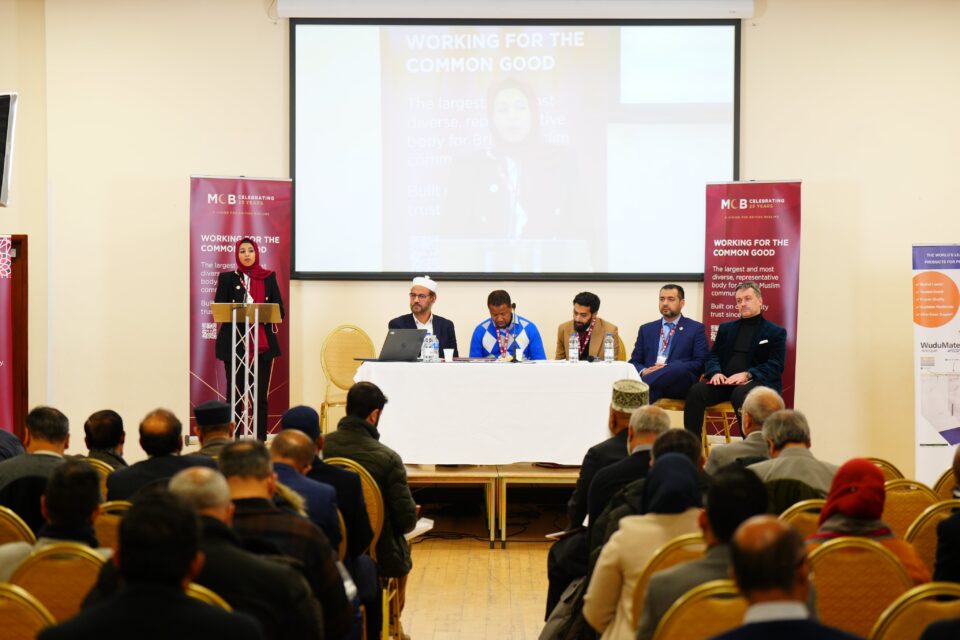The Muslim Council of Britain speaks out against ‘independent’ review on the Prevent strand of the Government’s Counter-Terrorism Strategy
Posted On February , 2023


Image by Twitter @MuslimCouncil
The Muslim Council of Britain (MCB) gave its response to the heavily trailed ‘independent’ review on the Prevent strand of the Government’s Counter-Terrorism Strategy earlier this month.
The organisation believes that the review will make Britain less safe and will make British Muslims feel particularly vulnerable as it attempts to play down the threat of far right extremism.
Zara Mohammed, Secretary General of the Muslim Council of Britain said, “Today, many British Muslims may well feel less protected as they are told that the Government should ignore the evidence and focus less on the threat from extreme right-wing extremism. This is a threat that thrives on Islamophobia, and a threat that has already seen violent attacks on Muslim communities.”
Last year, the Home Office said that, for the second year running, the number of referrals for Extreme Right-Wing radicalisation concerns (1,309; 20%) was higher than ‘Islamist’ referrals.
STIGMATISING BRITISH MUSLIMS
The so-called independent review and its right-wing supporters instead call for the focus to be placed on Muslim groups and individuals who have not only condemned extremism and terrorism, but who have worked with government to challenge the terrorist threat.
Mohammed added, “Muslim groups that are potentially named will have little recourse, no right of reply or adequate means of challenging baseless and/or inaccurate accusations, except for in a court of law. Any and all associated individuals, irrespective of the nature of their association to named organisations, will have their lives ruined, facing insurmountable challenges in every facet of their existence.”
“What we see in the so-called independent review is a re-hashing of divisive talking points determined at stigmatising Muslims and Muslim civil society. The pre-determined outcomes of the review have been leaked to the media and by think tanks for the last few years. Right-wing ideologues have created unfair McCarthyite blacklists of Muslim organisations and individuals who do not sign up to their reductive agenda. On the one hand they draw up an arbitrary set of values that they demand Muslims sign up to but are found wanting when compared by their own attitudes and actions to minorities.”
Media trailing of the Shawcross Review suggests that concerns about the toxicity of the brand and its stigmatisation of Muslims will continue to be ignored. This includes the securitisation of engagement with Muslim communities, the lack of transparency and accountability including through the denial of Freedom of Information request about Prevent, and the way it undermines freedom of speech.
LED BY DIVISIVE IDEOLOGUES
The MCB has long called for a truly independent review of Prevent. It would be an opportunity to build trust in our approach to tackling terrorism and was welcomed by many groups including the MCB.
Yet, the Government chose to undermine the independence of the review from the outset, as demonstrated by its legally challenged appointment of Prevent supporter Lord Carlile and its appointment of William Shawcross despite his disturbing views about Muslims, the MCB has said.
It added that here was a man, who, amongst a string of incendiary pronouncements, decried the alleged ‘vastly, growing very quickly, Islamic populations.’ It is no wonder that, under his chairmanship, the Charity Commission was accused of institutional bias apparently due to an unjustified assumption of extremism, leading to “38% of all disclosed statutory investigations” about Muslim charities (vs 5% of the population).
CONSISTENT MENTAL HEALTH APPROACH
The review appears to erroneously suggest that ‘Islamist threats’ are too often treated as mental health safeguarding concerns whilst far-right threats are not treated as mental health safeguarding concerns enough.
The evidence from the latest statistics released by the Government suggests the opposite is the case.
A far greater proportion of Prevent referrals related to the far-right (42%) lead to Channel intervention versus referrals related to Islamism (19%). This suggests that the scope for referrals is too wide for ‘Islamist-related’ issues and comparatively too narrow for the far- right. This is the opposite to what Shawcross is suggesting.
BUILDING A COUNTER-TERRORISM STRATEGY THAT KEEPS US SAFE & HAS BUY-IN FROM COMMUNITIES
The MCB believes that any approach should be evidence-based and should engage with all key stakeholders and that the Shawcross Review fails on both parts.
Zara Mohammed called for a proper re-think of the Prevent strand, involving all those who are affected, “Terrorism and violent extremism affect us all. The Muslim Council of Britain recommends a process where the fight against terrorism is rooted in evidence, not ideology. A process that will support security professionals and has the trust and backing of civil society more widely, all of whom are united against the terrorism we all oppose.”


By providing your details you agree that you wish to receive a regular newsletter and other marketing communications from us. Our newsletter and marketing communications will normally be sent by email. You can unsubscribe at any time by emailing us. Your personal data will be used in accordance with our privacy policy.